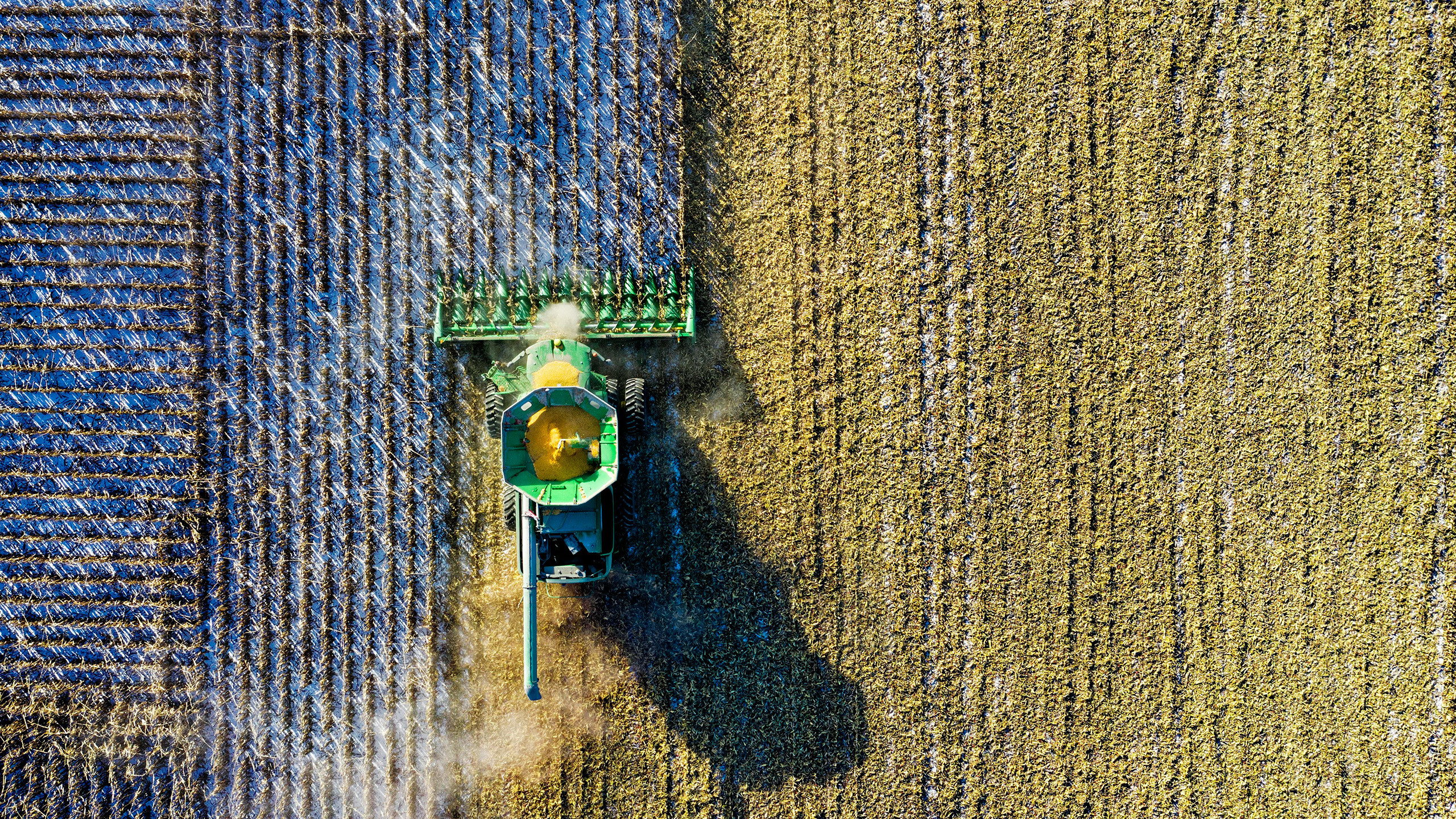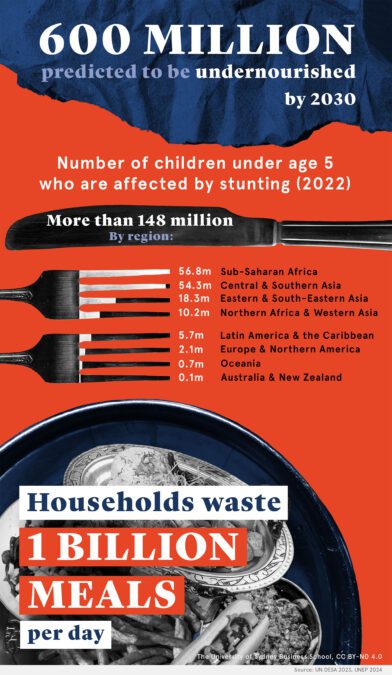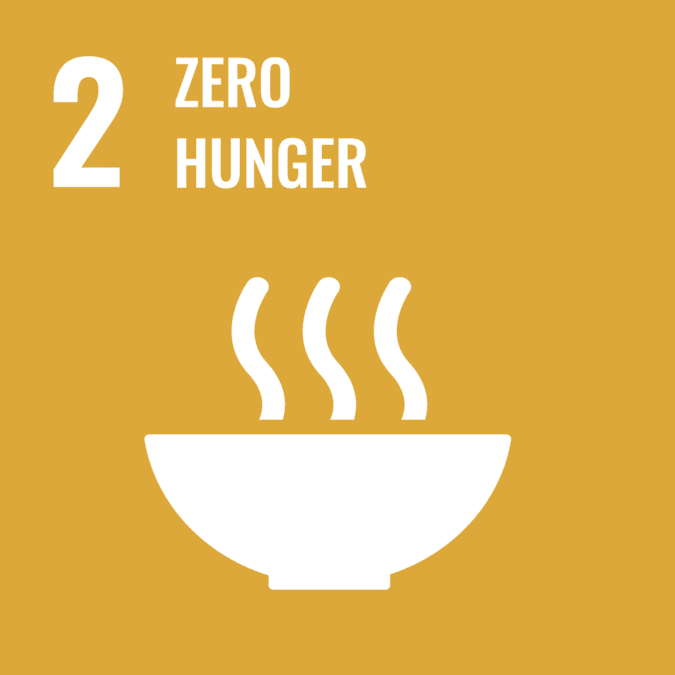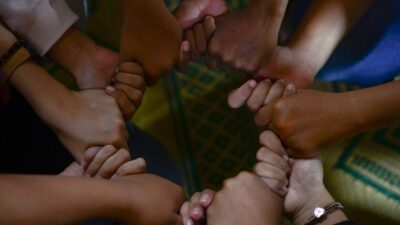
SDGs by 2030 – are we on track?
The good business in ending hunger
Ending hunger is a business opportunity waiting to be embraced by corporations, particularly in the areas of developing sustainable small scale agriculture, improving food systems and reducing food waste.
Ending hunger is a business opportunity waiting to be embraced by corporations, particularly in the areas of developing sustainable small scale agriculture, improving food systems and reducing food waste.
Business is the only part of society focused on profit and a leader in developing innovative solutions. Ending hunger requires approximately US$37 billion every year until 2030. If this sector, particularly the food and agricultural industries, are not engaged with this SDG, then it won’t be achieved.

Unfortunately this goal is going backwards: the world is at hunger levels not seen since 2005. Climate change, high food prices, food scarcity, and declining food production meant that in 2022 there were about 735 million people in a chronic state of hunger, and 2.4 billion experiencing moderate to severe food security.
Making profits and doing good can be mutually reinforcing goals. Business needs to realise that society’s problems such as SDG 2 are also business opportunities.
How is it possible to ethically profit from hunger?
The prevailing logic taught in business schools and practiced in Western business is to focus on the market segment with the most money (roughly 3 billion people). But the majority of the world’s population – about 5 billion – are poor. Additionally, the effects of hunger are more profound in these poor people. This is a significant business opportunity that is not being realised in the context of hunger and poor people.
Making money from hunger – companies are not trained to do that.
To address hunger, we need to understand the situation and perspectives of those who experience it. When researching food well-being amongst poor families in India, I realised the importance of the non-physical nature of food. For example, a person I interviewed said: “Even if I eat, I don’t feel full if my family’s not eating with me.” The family meal is critical to both their physical and mental well being.
Organisations need to consider not just the provision of food, but the context within which food is consumed. The main thing for the poor is eating with family. Organisations need to broaden their food strategy to engage with that process, to satisfy the physical and mental aspects of food consumption in impoverished communities.
Ending hunger is linked to a number of the other SDGs: SDG 1 on eliminating poverty, and SDG 13 on climate change, in particular. Without for-profit business, the world is not going to deal with any of the SDGs because business promotes innovation, it generates the money, and it’s part of society. Historically countering hunger has been the concern of governments and charities. Progress has been slow and we must not look away. Eradicating hunger requires a much bigger collaborative global effort. Of course business should be engaged in this objective.
Sustainable Development Goal (SDG) target addressed:
Target 2.4 By 2030, ensure sustainable food production systems and implement resilient agricultural practices that increase productivity and production, that help maintain ecosystems, that strengthen capacity for adaptation to climate change, extreme weather, drought, flooding and other disasters and that progressively improve land and soil quality.
Resources
How can business make profit and be part of the solution to ending hunger, ethically?
What are the key challenges that businesses (focused on profit) face in engaging in societal issues such as hunger?
How can food well-being be addressed by organisations engaging in reducing hunger in poor consumers?
Books
- Better Business Better World: The report of the Business & Sustainable Development Commission
- A Roadmap for reducing Australia’s food waste by half by 2030
Articles
- Families and food: exploring food well-being in poverty
- Kumar, M., Choubey, V.K., Raut, R.D. and Jagtap, S., 2023. Enablers to achieve zero hunger through IoT and blockchain technology and transform the green food supply chain systems. Journal of Cleaner Production, 405, p.136894.
- Herrmann, B. and Rundshagen, V., 2020. Paradigm shift to implement SDG 2 (end hunger): A humanistic management lens on the education of future leaders. The international journal of management education, 18(1), p.100368.
- Jamali, D., Barkemeyer, R., Samara, G. and Markovic, S., 2022. The SDGs: A change agenda shaping the future of business and humanity at large. Business Ethics, the Environment & Responsibility, 31(4).
- Damiano, R. and Di Maria, C., 2024. Exploring the role of companies and sustainability disclosure in achieving sustainable development goals: A focus on zero hunger and social inclusion. Corporate Social Responsibility and Environmental Management.
Podcasts and videos
- Join us for a Zero Hunger future
- 2030- SDG 2- Zero Hunger- Ted talks
- Here’s How Unilever Is Making A Difference in Food Waste – Our Brands in Action
- #GlobalGoals: Why Unilever supports Goal 2: Zero Hunger
- Eating Trash: The Chefs Turning Food Waste Into Trendy Eats | CBS Reports
- What is business for?
Websites
- Blueprint for business leadership on the SDGs
- UN News: World is moving backwards on eliminating hunger and malnutrition, UN report reveals
- Starving for Action: How Corporations Can Solve Global Food Insecurity
- Join the Zero Hunger Challenge | UN Global Compact
- Can marketing be a force for good in the world?
- United Nations Statistics Division: Zero Hunger
- United Nations Food Waste Index Report 2024
Ranjit is an Associate Professor of Marketing at The University of Sydney Business School. His research is focussed on the Sustainable Development Goals and reimagining the purpose of for-profit firms.
Share
We believe in open and honest access to knowledge. We use a Creative Commons Attribution NoDerivatives licence for our articles and podcasts, so you can republish them for free, online or in print.




